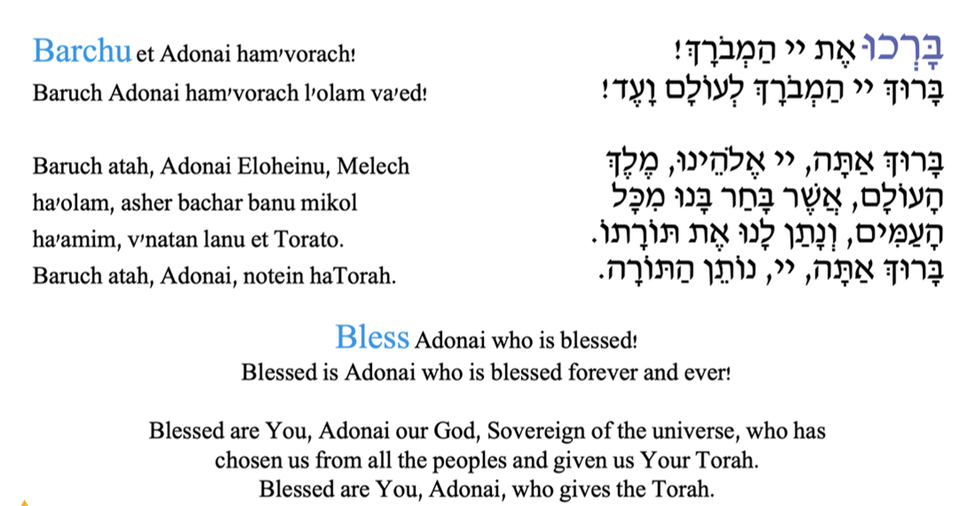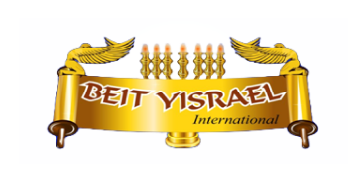Sabbath Nachamu - Shabbat after Tish’a B’Av (Shabbat of Consolation)
The Shabbat after Tisha B'Av is called Shabbat Nachamu, the Sabbath of Comforting. The name comes from chapter 40 of the Book of Isaiah: נַחֲמוּ נַחֲמוּ עַמִּי יֹאמַר אֱלֹקיכֶם – “Comfort, comfort My people, says your Adonai.”
SHABBAT NACHAMU
Va’etchanan | ואתח נן | “I pleaded” / “I besought”
“Va-etchanan”. The word has no ready translation into English. It is a verb, and it includes the word “chanan”, which means “gracious” or “benevolent”. The best translation is content of today’s Parsha, is “I implore you, O Adonai, without right or expectation. Graciously grant my earnest request.” Or, in shorter words, “Oh Adonai, I beg you, I beseech you. Hear my prayer and grant it from grace*.”*
SUMMARY:
Moses pleads with G-d to let him enter the Land of Israel with the people, but G-d once more refuses his request. ( Deut 3:23–28)
Moses orders the Children of Israel to pay attention and follow the laws given by G-d in order to be worthy of the land they are about to receive. ( Deut 4:1–40)
Specific areas of the land are set aside to serve as cities of refuge. (Deut 4:41–43)
The covenant at Sinai and the Ten Commandments are recalled. Once again, the people are exhorted to heed G-d’s commandments. (Deut 5:1–30)
Moses speaks the words of the Sh’ma, and commands Israel to show their love for Adonai and keep G-d’s laws and ordinances. ( Deut 6:1–25)
Moses warns the people not to commit idolatry by Worshiping the gods of the nations they will conquer in Israel. ( Deut 7:1–11)
Quotes of the Sabbath :
Rabbi Simeon (100-170 CE) said: If three have eaten at one table and have not spoken over it words of the Torah, it is as though they had eaten of the sacrifices of the dead (Ps 106:28), for it is written, For all tables are full of vomit and filthiness without God (Isa 28:8). But if three have eaten at one table and have spoken over it words of the Torah, it is as if they had eaten from the table of God, for it is written, And he said unto me, This is the table that is before the Lord. (Ezekiel 41:22)-Mishnah, Avot 3:3
Before Reading the Torah:


Torah
Deuteronomy 3:23-7:11
Haftarah Portion
Isaiah 40:1-26
After reading the Torah:


Gaddi Notes from Sages Writings:
I beseeched G‑d at that time -Deuteronomy 3:23
Prayer is called by ten names: cry, howl , groan, song, encounter, stricture, prostration, judgment and beseeching.
Prayers Torah Verses : Exodus 2:23–24, Jeremiah 7:16, Psalms 18:6, Deuteronomy 9:25, Psalms 106:30 and Deuteronomy 3:23**.- Midrash Rabbah**
Moses prayed 515 prayers—the numerical value (gematria) of va’etchanan, “and I beseeched”—to be allowed to enter the Land**.- Midrash Rabbah**
Moses said to G‑d: Master of the Universe! Joseph’s bones are entering the Land, and I shall not enter? Said G‑d to him: He who admitted to his land is buried in his land; and he who did not admit to his land shall not be buried in his land. Joseph admitted to his land when his master’s wife said (Genesis 39:14), “See, they have brought us a Hebrew man . . . ,” and he did not deny it; on the contrary, he said , “I was abducted from the land of the Hebrews.” Therefore, he shall be buried in his land. You, however, did not admit to your land when the daughters of Jethro said (Exodus 2:19), “An Egyptian man rescued us from the shepherds,” and you heard this and were silent. Therefore, “you shall not cross this Jordan**.” -Midrash Rabbah**
The Midrash often refers to Moses and Messiah respectively as the First Redeemer and the Ultimate Redeemer.
Amazing Verse From Brit Hadshah- Moses Entered into the Land of Yisrael Along with Mashiach
Then Moses and Elijah appeared to them, talking with Yeshua Tzaddik – Brit Hadshah
Haftarat Vaetchanan – Isaiah 40:1-26
This week’s Torah and haftarah portions are always read after Tisha B’Av [9th of Av]. They are always read after our three week period of mourning over our sin of the Golden Calf, and our lack of faith at Kadesh-Barnea and the sin of the spies. We have mourned and repented and fasted.
We have asked the question, “When will You reign in Zion?” For these three weeks:
We have seen the spiritual devastation of our lives – which reflects the devastation of the Land after Babylon and Rome finished their destructions.
We have felt the spiritual dryness brought about by our sin and our pride
We have prayed
We have wept
We have mourned over our sin and our lack of faith
We have sought the righteousness of HaShem
We have repented with open hands
The Holy One, blessed is He, answers us from this week’s Torah and haftarah. We knew He would, because we believe Him. His Word is sure to us.
Nachamu, nachamu ami!
“Comfort, yes, comfort My people!” says your G-d. “Speak comfort to Jerusalem, and cry out to her, that her warfare is ended, that her iniquity is pardoned; for she has received from HaShem’s hand double for all her sins.” -Isaiah 1:1-2
Yochanan the Immerser a cry is once again heard in the wilderness:
The voice of one crying in the wilderness: “Prepare the way of HaShem; make straight in the desert a highway for our G-d. Every valley shall be exalted and every mountain and hill brought low; the crooked places shall be made straight and the rough places smooth; The glory of HaShem shall be revealed, and all flesh shall see it together; for the mouth of HaShem has spoken.” -Isaiah 40:3-5
Redemption draweth nigh! These are the days of Mashiach [Messiah]. These are the days of comfort. The Almighty is drawing us to Him – and this is by the work of Messiah.
These are days of comfort and rest. These are days that we quietly reflect how we have been rescued. Our tears have dried. Our mourning is past. Our repentance is steadfast.
We look expectantly toward Zion… and ask the faith-filled question, “When will You reign in Zion?”
O Zion, you who bring good tidings, get up into the high mountain; O Jerusalem, you who bring good tidings, lift up your voice with strength, lift it up, be not afraid; say to the cities of Judah, “Behold your G-d!” Behold, HaShem G-d shall come with a strong hand, and His arm shall rule for Him; behold, His reward is with Him, and His work before Him. He will feed His flock like a shepherd; He will gather the lambs with His arm, and carry them in His bosom, and gently lead those who are with young. -Isaiah 40:9-11
Aaron Blessings: Numbers 6:24–26
Yevarechecha AdonaiVe'yishmerecha. Ya'er Adonai panayv eylecha vi'chuneka. Yissa Adonai panayv eylecha ve'yaseym lecha shalom.


Shabbat Shalom- Gaddi Efrayim(President) - Beit Yisrael International


